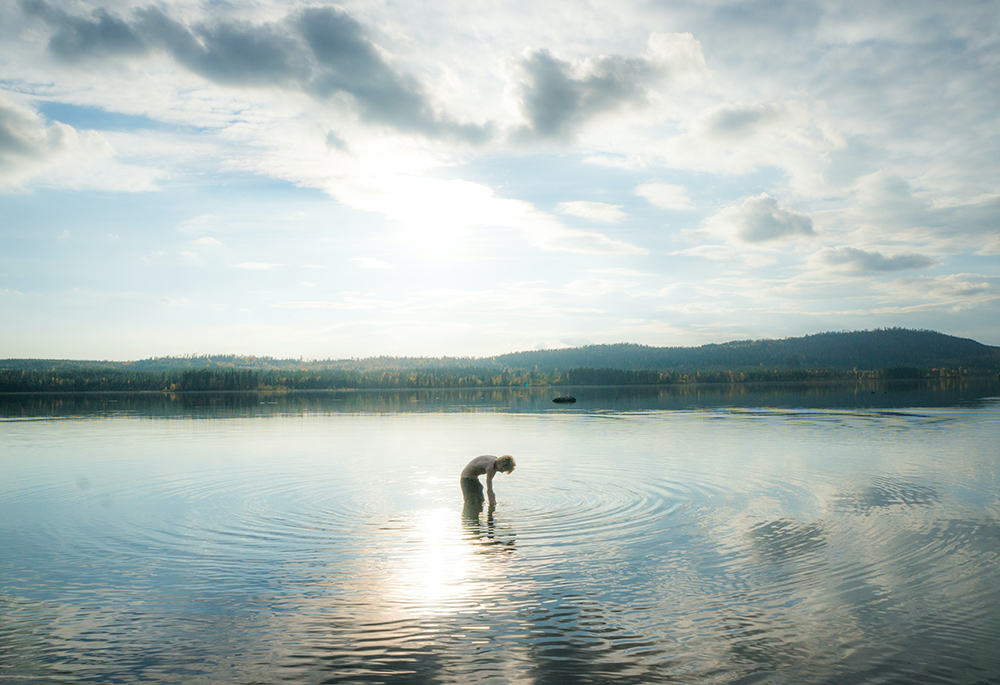
(Unsplash/Javi Arji)
Climate crisis, royalty, embodiment and marginality. What a strange combination of themes that emerge from this Sunday's readings that challenge our ways of thinking, our traditional beliefs, our self-understanding, and our position in life. These themes, though disconcerting, can be life-giving not only for the human community but also for all communities of life, and indeed, especially for the planet itself. Deeply embedded in today's readings is a message of hope and an opportunity to move beyond our God metaphors so that we can embrace life in a fuller way for the full flourishing of all creation.
The first reading is taken from the Wisdom of Solomon, traditionally labeled by Roman Catholics as one of the seven deuterocanonical books. Roman Catholic and Eastern Orthodox Christians include these seven books in the Old Testament canon; Protestants and Protestants' versions of the Bible do not. Instead, these seven books are included in a section called the apocrypha placed at the end of the Old Testament. These seven books were never part of the Jewish Hebrew canon.
This information is interesting for Roman Catholics because today's reading from the Wisdom of Solomon helps to shape the Catholic teaching on the theology of sacramentality. This theology maintains that all life, all creation is holy. Today's poem from the Wisdom of Solomon declares that the Sacred One not only loves all creation but also sustains all creation. A further bold statement in this reading is that the divine's "imperishable" spirit is in all things. Other translations have "immortal" spirit is in all things. Thus, the divine Spirit is imbued in all creation which further grounds the theology of Catholic sacramentality.
So why is this reading from Solomon so important? One reason is because it has profound implications for our environmental crisis today. When we listen to this text, if we can hear a vision and understanding of the Holy Spirit it presents to us, namely, that the spirit of the Sacred One pulsates within all creation — a spirit that no one religious tradition could ever contain or makes claims to — then we can see how this Wisdom poem can inform our thinking and our lives today.
If we take a cosmological view of creation instead of an anthropocentric one, the message to us becomes clear: every time we lose a human or nonhuman species unnaturally due to climate crisis, we have lost something of the spirit, the wonder, the beauty and the mystery of the divine. Sustainability, then, becomes more than sustaining life and the planet itself; sustainability is about preserving the very essence of the divine within us, within all that is created. If we do not realize this point at its deepest level, then that is our spiritual poverty.
Advertisement
The world has witnessed an amazing event: the passing of Queen Elizabeth II, the longest reigning monarch in British history. Many people commented on Queen Elizabeth's kindness and compassion, her goodness and fidelity to duty. But some have also commented on her imperial rule that included the colonization of peoples and lands, some of which are still not independent in present time. Britain is an empire nation that continues to sustain a monarchy characterized by power and wealth. Other countries continue to sustain monarchies as well, like Jordan. Some, like Germany, have abolished them.
In today's responsorial psalm, we hear about the graciousness, mercy, compassion and fidelity of the Holy One. But the language for the Holy One who is beyond all metaphors is clearly kyriarchal and patriarchal, reflective of biblical times when empires struggled against one another for power over peoples, lands and resources. The psalm invites us to ponder this question: What does our "God-language" say about what we believe in and what we believe about the Holy One?
The second reading from 2 Thessalonians and the Gospel invites us to ponder our self-understanding. What is the divine calling we have received that the Holy One should make us worthy of? The call is the call to holiness, to become the embodiment of the divine that can only happen when we give ourselves over to the radical transformative work of the divine Spirit.
Whether we are well on our way in this journey, or on the margins like Zacchaeus, we are all called to welcome the Holy One in our midst who first calls out to us. The only needed prerequisites are wonder and hospitality to welcome the divine regardless of our state in life. As we have heard in the poem from the Wisdom of Solomon, the Spirit of God is in all things, even in the least among us.
[Carol J. Dempsey is a Dominican Sister of Caldwell, New Jersey, and professor of biblical studies at the University of Portland, Oregon.]
